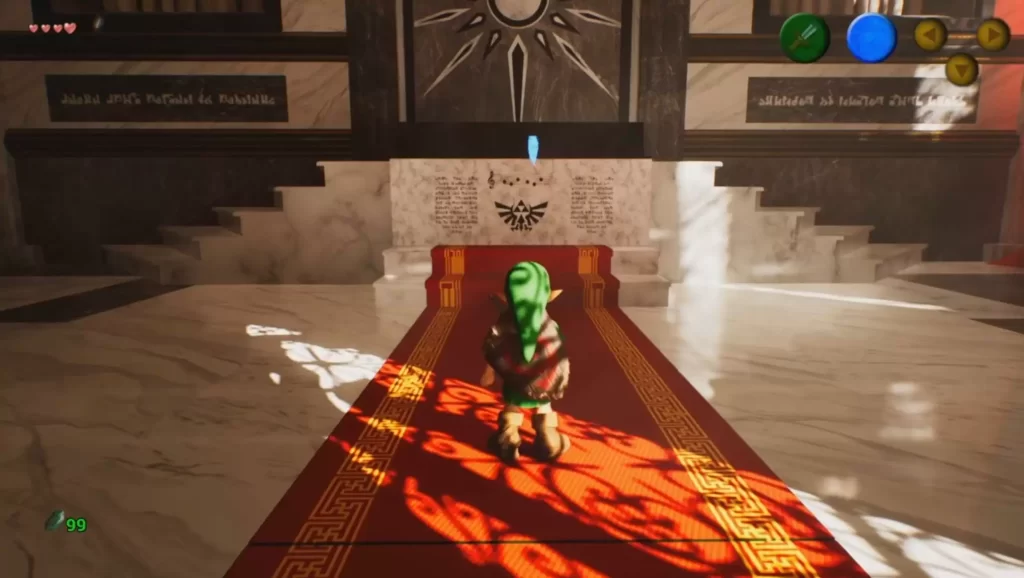You know, jobs in IT are at an all-time high right now. It’s a booming industry, which includes game development – after all, games are essentially software! With so many studios creating games for PCs, consoles, mobile devices, and even the metaverse, programming skills are in huge demand. But, with so many programming languages at our disposal, it’s tough knowing where to begin.
So let’s take a glimpse at some of the most popular programming languages used for game development. We’ll explore today what makes them popular and which might be a better fit, helping you decide which programming languages to learn.
We’ll also look at their strengths and weaknesses – considering what types of games they are usually used for – and weigh their pros and cons to help you make an informed decision for your game development journey!
What are the most popular programming languages for game development?
We can narrow the most popular programming languages (in other words, with wide adoption across game developers) down to 8, really. Let’s dive right into them.
C++
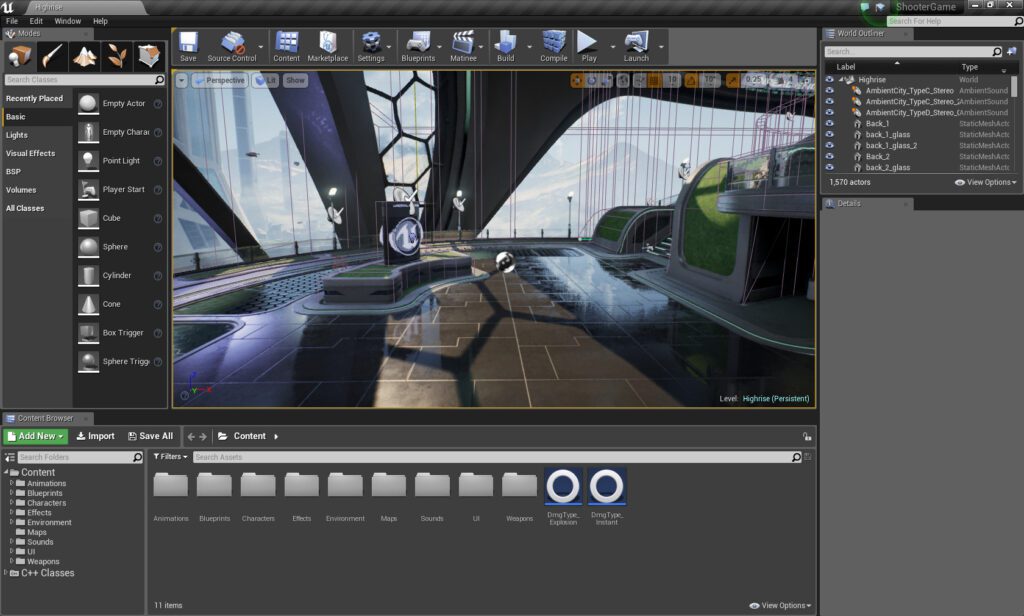
Developed in the 1970s by Bjarne Stroustrup as an extension of the C programming language, C++ is a powerful, general-purpose language praised for its performance and flexibility. Its low-level access to system resources makes it an excellent choice for high-performance games, workflow tools, and game engine development.
Many AAA studios favor C++ because it allows them to create graphically intensive and demanding titles while maintaining good performance.
By the way, Unreal Engine, a popular choice among AAA studios and indie creators, is primarily built using C++.
C#
C# (C Sharp), developed by Microsoft in the early 2000s, is a versatile, object-oriented language praised for its readability and ease of use. It provides a balance between performance and developer-friendliness, making it a popular choice for numerous game development projects.
It’s the primary language for Unity, one of the most accessible and popular game engines for both 2D and 3D games, with a massive community and extensive support.
C#’s strong tooling and the large community surrounding Unity make it a great option for developers of all skill levels. While it might not offer the same level of low-level control as C++, its ease of use and extensive libraries make it well-suited for a wide range of game development projects, from small indie games to large-scale productions.
As a bonus, Unity also offers visual scripting, allowing for a no-code approach that makes it even more accessible for less experienced programmers. You will benefit more from learning how to code, though!
Swift
Developed by Apple Inc. and first released in 2014, Swift is a modern, general-purpose programming language designed for building high-performance apps and games for iOS, macOS, watchOS, tvOS, and beyond. Its clean syntax, focus on safety, and automatic memory management make it a popular choice for developers of all skill levels. Thanks to its versatility, Swift is also gaining traction in server-side development.
The language’s performance capabilities and tight integration with Apple’s ecosystem make it a no-brainer for developers targeting Apple’s devices. While it may not be as widely used in other game development environments, its increasing popularity and the continued growth of mobile gaming suggest its future in game development remains promising, especially if you focus on iOS and macOS games.
Java
Java, first released by Sun Microsystems (later acquired by Oracle) in 1995, is a robust, object-oriented programming language celebrated for its cross-platform capabilities and mature ecosystem.
Thanks to the Java Virtual Machine (JVM), code can run on virtually any platform with a JVM implementation, a significant advantage for developers targeting multiple operating systems and devices. This cross-platform compatibility makes it an attractive option for larger-scale game development projects that need to reach a broad audience – as Minecraft did.
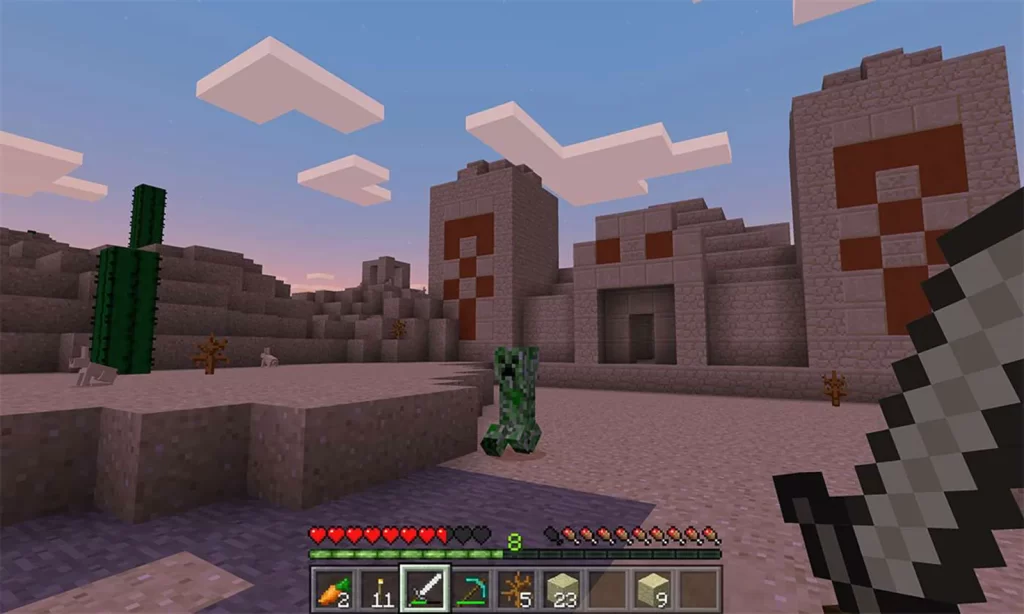
LibGDX is a popular framework that simplifies 2D and 3D game development using Java, allowing you to create games for various platforms such as desktops, Android, iOS, and web browsers with minimal code changes.
However, Java’s verbosity – requiring more lines of code to achieve a specific task – can be a disadvantage for some developers who prefer cleaner and more concise syntaxes. Still, Java’s extensive libraries, strong community support, and cross-platform capabilities make it a relevant choice for many game developers.
Lua
Created by Brazilians in the mid-1990s, Lua is a lightweight, embeddable scripting language known for its simplicity, speed, and ease of integration into other applications.
In game development, its flexibility is excellent for scripting and extending game functionality. Lua is often embedded within larger game engines or applications, allowing developers to customize and enhance the game experience through scripting.
The language’s relatively small size and ease of integration allow for efficient scripting and rapid prototyping, making it a favorite among game developers who want to add custom features or tailor the gameplay experience without modifying the core game code.
Its popularity is even greater in platforms like Roblox, where Lua is the primary scripting language used by developers to create interactive experiences and games. Its large and active community further contributes to Lua’s accessibility and continued relevance.
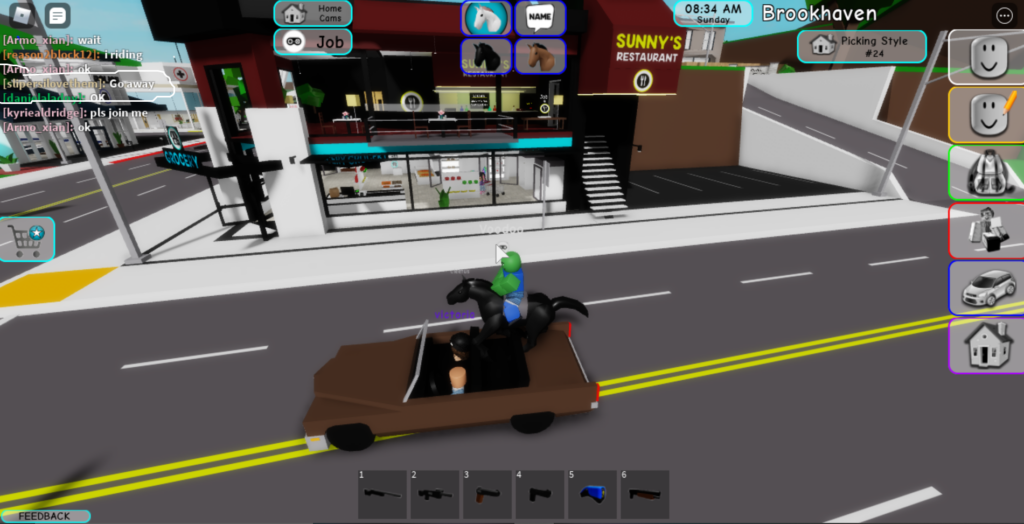
GDScript
GDScript is a high-level, dynamically typed scripting language developed specifically for Godot Engine. This makes it tightly integrated with Godot’s features, offering ease of use and efficiency. It boasts a syntax inspired by Python, making it relatively straightforward to learn, too.
Because GDScript is Godot’s native language, it offers seamless integration with the engine’s features. Developers can easily access Godot’s APIs and tools directly from their scripts, streamlining the development process and enhancing workflow.
This close integration increases speed, reduces debugging time, and streamlines development. Although it is barely used outside of Godot, its specialized design offers strong benefits for its developers.
Python
Python, first released in 1991, is a high-level, general-purpose programming language known for its simple, readable syntax and extensive libraries. Its ease of use and versatility have led to widespread adoption across many fields. While not as commonly used for building the core of large-scale games as C++ or C#, Python excels in rapid prototyping, scripting, and creating tools for game development.
Libraries like Pygame-CE, Turtle, and Tkinter can create simple 2D games, making Python suitable for testing game mechanics or building small, experimental projects. Ren’Py, a visual novel engine, is entirely written in Python, showcasing its suitability for narrative-driven games.
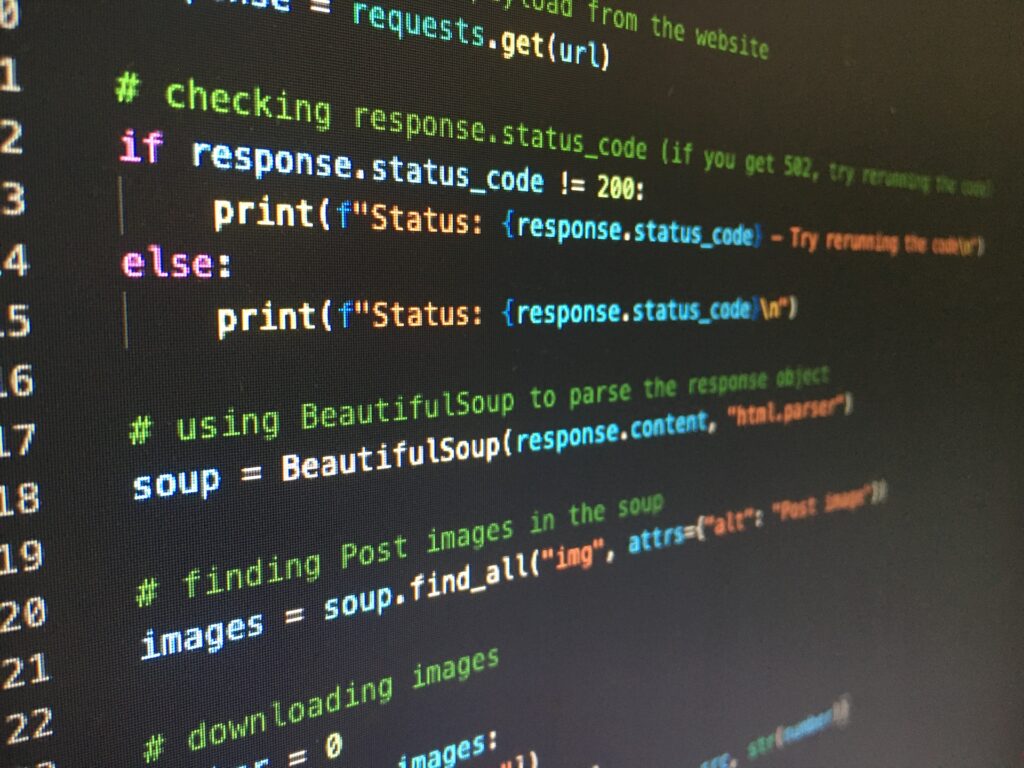
JavaScript (and HTML + CSS)
JavaScript is the universal scripting language of the web. This makes it the primary language for creating games that run directly in web browsers, such as those on sites like Kongregate. JavaScript offers several advantages for web game development, such as extensive browser compatibility, ease of deployment, and a massive community.
There are also several libraries and frameworks to aid you in your journey: Phaser (used in Vampire Survivors), Babylon.js (3D), Three.js (3D), and PixiJS (2D), each providing a different set of tools and capabilities.
However, this success relies heavily on HTML and CSS, the languages behind the layout and styling of websites, for structuring and styling the game in a browser window. Therefore, developers need some knowledge of these languages to create games in JavaScript that run on a web browser.
Read also: Scratch programming language – a beginner’s way to coding

Conclusion
We hope this article helped you understand the most popular programming languages in game development. To reiterate: there’s no single “best” language, and the ideal choice depends on your project and goals.
Still in doubt? If you’re focused purely on game development, C# (Unity) and C++ (Unreal) are solid bets. If you’re also interested in data science, artificial intelligence, or machine learning, Python could be a great choice, and, if web development is your passion, JavaScript is likely the way to go.
Whatever your decision, if you find you need extra hands to bring your project to life, Main Leaf is here to help. We offer a full suite of game development services, from concept to launch, and we can support you with everything from design and programming to art and testing.
Contact us today to discuss your project and turn your vision into reality with our expertise!
